
GEOTECTONICS
Scope & Guideline
Pioneering Insights into Earth's Geological Processes.
Introduction
Aims and Scopes
- Tectonic Dynamics and Geodynamics:
Research focusing on the mechanisms and processes that drive tectonic movements and the resulting geological features. This includes studies on crustal deformation, subduction zones, and plate tectonics. - Seismology and Seismic Hazard Assessment:
Investigations into seismic activity, earthquake prediction, and the assessment of seismic hazards. This includes studies that utilize geophysical data to analyze fault systems and their potential impacts. - Geophysical and Geological Mapping:
Application of geophysical methods, such as seismic tomography and remote sensing, to delineate geological structures and understand subsurface conditions. - Structural Geology:
Analysis of geological structures resulting from tectonic processes, including faulting, folding, and basin formation. This area often incorporates field studies and laboratory experiments. - Geological Resources and Tectonics:
Exploration of the relationship between tectonic settings and natural resources, particularly hydrocarbons and minerals, to assess potential reserves and resource distribution.
Trending and Emerging
- Numerical and Experimental Modeling:
A growing emphasis on numerical modeling techniques to simulate tectonic processes and predict geological outcomes. This trend reflects advancements in computational capabilities and the need for predictive models in understanding tectonic phenomena. - Integration of Remote Sensing and Geophysical Data:
Increased utilization of remote sensing technologies and geophysical data to analyze tectonic and seismic activity. This trend underscores the importance of interdisciplinary approaches in modern geoscience. - Impact of Modern Geodynamics on Natural Hazards:
Research focusing on the implications of current geodynamic processes on natural hazards, particularly earthquakes and their prediction. This is crucial for societal preparedness and risk mitigation. - Tectonics and Climate Interaction:
Emerging studies exploring the interactions between tectonic processes and climate change, particularly how geological processes affect and are affected by climatic conditions. - Geodynamics in Resource Exploration:
A trend towards linking tectonic studies with resource exploration, particularly in hydrocarbon and mineral deposits, reflecting the growing need for sustainable resource management.
Declining or Waning
- Paleomagnetic Studies:
While paleomagnetism has historically been a significant area of research, recent publications indicate a waning interest in this theme, likely due to the emergence of more advanced geodynamic modeling techniques. - Geological History and Stratigraphy:
Studies focusing exclusively on the historical geological record and stratigraphic analysis seem to be decreasing in prominence, possibly as researchers pivot towards more applied aspects of tectonics and resource exploration. - Local Case Studies without Broad Geodynamic Context:
There is a noticeable reduction in the publication of localized case studies that do not connect to broader geodynamic themes or implications, suggesting a shift towards more integrative and global analyses.
Similar Journals

JOURNAL OF SEISMOLOGY
Pioneering insights into geophysical phenomena.Welcome to the JOURNAL OF SEISMOLOGY, an esteemed publication in the field of Earth sciences, dedicated to the study of seismic phenomena and their implications on geophysical and geochemical processes. Published by SPRINGER and based in the Netherlands, this journal has been contributing to the academic community since 1997 and is set to continue through 2024. With an impressive ranking within the quartiles—Q2 in Geophysics and Q3 in Geochemistry and Petrology for 2023—this journal is a pivotal resource for researchers and professionals seeking to expand their understanding of seismic activities, earthquake mechanics, and related geological interactions. Despite not offering open access, it remains a highly regarded platform for disseminating rigorous research and findings in Earth and Planetary Sciences, sustaining a global readership keen on advancing their knowledge in this dynamic field. The JOURNAL OF SEISMOLOGY is committed to fostering scholarly exchange and advancing scientific inquiry, making it an invaluable asset for students, researchers, and professionals alike.
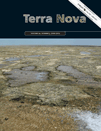
TERRA NOVA
Transforming Geological Knowledge into ImpactTERRA NOVA, published by WILEY, is a leading journal in the field of Geology, with a remarkable impact within the academic community. With the ISSN 0954-4879 and E-ISSN 1365-3121, the journal has been a pivotal platform for innovative research since its inception in 1989 and will continue its influence through to 2024. Ranked in the top tier (Q1) of its category for 2023, TERRA NOVA holds an esteemed position with a Scopus ranking of 67 out of 321 in Earth and Planetary Sciences, showcasing its dedication to high-quality, impactful scientific discourse. The journal covers a diverse range of topics within geology, providing valuable insights for environmental scientists, geologists, and industry professionals. By fostering an interdisciplinary approach, TERRA NOVA remains committed to advancing the understanding of geological processes and their implications for society. With a dedicated readership of researchers, professionals, and students, this journal is essential for those looking to stay abreast of the latest developments and trends in the field.

GEOSCIENCES JOURNAL
Charting New Territories in Earth and Environmental Science.Welcome to the GEOSCIENCES JOURNAL, a pivotal publication in the fields of Earth and Planetary Sciences and Environmental Science, proudly presented by the Geological Society of Korea. Established in 1997, this journal has become a prominent platform for researchers, professionals, and students, offering a rich collection of peer-reviewed articles that explore a diverse array of geoscientific topics. With an impressive Q2 ranking in both Earth and Planetary Sciences and Environmental Science categories for 2023, it stands as an essential resource in the academic community. Though it operates under a traditional subscription model, GEOSCIENCES JOURNAL remains dedicated to advancing knowledge through rigorous research. Addressed from its headquarters in Seoul, South Korea, the journal aims to foster a deeper understanding of geosciences, encouraging innovation and collaboration in tackling today’s environmental challenges.
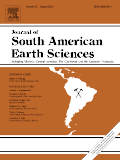
JOURNAL OF SOUTH AMERICAN EARTH SCIENCES
Unveiling Earth's Secrets Through South American LensesJOURNAL OF SOUTH AMERICAN EARTH SCIENCES is a premier interdisciplinary journal dedicated to publishing high-quality research in the fields of Earth-Surface Processes, Geology, and Paleontology, making it an essential resource for scientists and researchers focused on South American geology and its diverse geological phenomena. Published by Pergamon-Elsevier Science Ltd in the United Kingdom, this journal has been instrumental in disseminating groundbreaking studies since 1988, showcasing contributions that push the boundaries of knowledge in Earth and Planetary Sciences. With an impressive Scopus ranking—positioning it in the 74th percentile for Paleontology and 71st for Geology—this journal not only reflects robust academic quality but also its commitment to addressing critical geological challenges in South America. Researchers will appreciate its objective of advancing understanding of geological processes while providing insights into past, present, and future Earth environments. Although available through traditional subscription models, the journal's vast repository of articles enriches the academic landscape, facilitating the sharing of vital research among professionals, students, and geological practitioners.

Solid Earth Sciences
Exploring the dynamic processes that shape our planet.Solid Earth Sciences is a dynamic open-access journal published by Elsevier, dedicated to advancing our understanding of the Earth's subsurface processes and materials. Since its inception in 2016, the journal has established itself as a vital resource for researchers and professionals in the fields of geochemistry, petrology, geology, geophysics, and geotechnical engineering, achieving a notable Q2 ranking in multiple categories as of 2023. With an ISSN of 2451-912X, the journal aims to disseminate high-quality research that enhances knowledge of earth surface processes and the intricate interactions within our planet's systems. The journal is indexed in Scopus, showcasing an impressive rank in various sub-disciplines, with a rank of #96 in Geology and a noteworthy percentile in Earth and Planetary Sciences. Solid Earth Sciences offers a platform for innovative studies, comprehensive methodologies, and cutting-edge technological advancements that cater to a global audience of scientists, academics, and students. With its commitment to open access, it fosters wider dissemination and impact of research outcomes, ensuring that pivotal discoveries reach stakeholders and contribute to real-world applications.
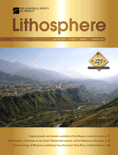
Lithosphere
Connecting Researchers to the Heart of Geology.Lithosphere, published by GEOSCIENCEWORLD, is a premier open access journal that has been at the forefront of geological research since its inception. With the ISSN 1941-8264 and the E-ISSN 1947-4253, this journal serves as a vital resource for researchers, professionals, and students interested in Earth and planetary sciences, particularly in the field of geology. Its impressive ranking of Q2 in the 2023 category indicates its vital role in disseminating high-quality, impactful research. The journal’s commitment to open access since 2018 enhances its reach, providing global accessibility to cutting-edge studies that span a diverse range of geoscientific topics, from tectonics to sedimentology. With Scopus Rank #88 out of 321 in Earth and Planetary Sciences, it offers a strong platform for scholars to share their findings and engage with the latest advancements in the discipline. As the journal continues its convergence from 2009 to 2024, Lithosphere remains a crucial publication for those striving to deepen their understanding of Earth's systems.

China Geology
Fostering Collaboration in Geoscience ExplorationChina Geology, published by KEAI PUBLISHING LTD, is a leading open-access journal that serves as a pivotal platform for disseminating high-quality research across a wide spectrum of Earth sciences. Since its inception in 2018, the journal has rapidly established itself with an impressive Q1 ranking in multiple critical categories, including Geology, Economic Geology, and Oceanography, among others, reflecting its significant contribution to the academic community. Positioned as a top-tier journal in the Earth Planetary Sciences domain, it ranks #22 out of 321 in Geology and exhibits an admirable impact in sub-fields such as Earth-Surface Processes and Geochemistry and Petrology. China Geology is committed to promoting rigorous scientific inquiry and facilitating the open exchange of knowledge in the geosciences, making it an essential resource for researchers, professionals, and students eager to explore innovative developments and fundamental advances in geology. The journal’s accessibility ensures that critical findings reach a broad audience, thereby enhancing collaboration and driving forward scientific discourse in the global community.
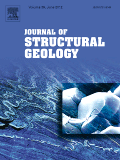
JOURNAL OF STRUCTURAL GEOLOGY
Innovating Insights into Geological Structures.The JOURNAL OF STRUCTURAL GEOLOGY, published by PERGAMON-ELSEVIER SCIENCE LTD, is a leading academic journal in the field of geology, renowned for its rigorous peer-reviewed articles that delve into the complexities of structural geology. With an ISSN of 0191-8141 and an E-ISSN of 1873-1201, this journal provides a vital platform for scholars and researchers to disseminate their findings and innovations in understanding geological structures. The journal has consistently demonstrated its impact within the scientific community, achieving a prestigious 2023 Category Quartile Q1 ranking in Geology and being positioned at rank #50/321 (84th percentile) among Earth and Planetary Sciences on Scopus. Although not an Open Access publication, the JOURNAL OF STRUCTURAL GEOLOGY is accessible to a broad range of academics and students worldwide, showcasing cutting-edge research that spans from its inception in 1979 to its live articles through 2024. With its focus on advancing knowledge and techniques in structural analysis, the journal stands as an essential resource for professionals and students committed to the exploration of geological forces that shape our planet.
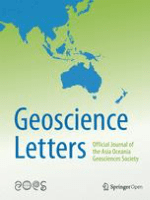
Geoscience Letters
Fostering Collaboration for a Better PlanetGeoscience Letters, published by Springer, is a prominent open-access journal in the field of Earth and Planetary Sciences, recognized for its dedication to advancing knowledge and research in this vital area of study. With a reported impact factor that reflects its esteemed position—ranking in the Q1 quartile of Earth and Planetary Sciences, particularly as the journal ranks #48 out of 195 in the general category according to Scopus—the journal serves as a vital resource for researchers, professionals, and students. Since its inception in 2014, Geoscience Letters has facilitated the dissemination of high-quality research and critical insights, aiming to bridge the gap between scientific discovery and societal needs. Its commitment to open access ensures that the latest findings are readily available to a global audience, thus enhancing collaboration and innovation within the geosciences community.
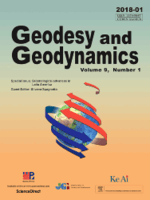
Geodesy and Geodynamics
Pioneering Insights into Earth's Structure and Dynamics.Geodesy and Geodynamics is a premier open-access journal dedicated to the interdisciplinary fields of geodesy and geodynamics, published by KEAI PUBLISHING LTD. With a commitment to accessibility since 2010, this journal serves as an essential platform for researchers, professionals, and students in understanding the Earth's structure, dynamics, and geophysical processes. Based in China, it has rapidly gained recognition, earning a commendable Q2 ranking in various categories, including Computers in Earth Sciences, Earth-Surface Processes, and Geophysics. The journal covers critical advances in theory and practice, making significant contributions to the study of planetary sciences. Researchers can benefit from a robust readership and impactful dissemination of their work, as evidenced by its solid positions in Scopus rankings. Moving forward, Geodesy and Geodynamics aims to continue fostering innovation and collaboration within the geoscience community through high-quality research and comprehensive review articles.